-
MARKET ATTRACTIVENESS ANALYSIS 18
-
Microcrystalline Cellulose MCC Market, BY SOURCE 18
-
Microcrystalline Cellulose MCC Market, BY END-USE INDUSTRY 19
-
Microcrystalline Cellulose MCC Market, BY REGION 20
-
MARKET INTRODUCTION
-
DEFINITION 21
-
SCOPE OF THE STUDY 21
-
MARKET STRUCTURE 22
-
RESEARCH METHODOLOGY
-
RESEARCH PROCESS 23
-
PRIMARY RESEARCH 24
-
SECONDARY RESEARCH 25
-
MARKET SIZE ESTIMATION 25
-
TOP-DOWN AND BOTTOM-UP APPROACH 26
-
FORECAST MODEL 27
-
LIST OF ASSUMPTIONS 28
-
MARKET DYNAMICS
-
INTRODUCTION 29
-
DRIVERS 30
- INCREASING DEMAND OF MICROCRYSTALLINE CELLULOSE IN PHARMACEUTICAL INDUSTRY 30
- SUSTAINABLE GROWTH OF DEMAND IN PROCESSED FOOD INDUSTRY 30
-
RESTRAINT 31
- AVAILABILITY OF SUBSTITUTES 31
-
OPPORTUNITIES 32
- DEVELOPMENT AND USE OF NON-WOOD BASED MICROCRYSTALLINE CELLULOSE IN THE GLOBAL MARKET 32
- INCREASING USE OF MICROCRYSTALLINE CELLULOSE FOR COSMETICS AND PERSONAL CARE PRODUCTS 32
-
MARKET FACTOR ANALYSIS
-
SUPPLY CHAIN ANALYSIS 34
- RAW MATERIAL SUPPLIERS 34
- MICROCRYSTALLINE CELLULOSE MANUFACTURERS 35
- DISTRIBUTION & SALES CHANNEL 35
- END USE 35
-
PORTER’S FIVE FORCES ANALYSIS 36
- THREAT OF NEW ENTRANTS 36
- INTENSITY OF COMPETITIVE RIVALRY 37
- THREAT OF SUBSTITUTES 37
- BARGAINING POWER OF SUPPLIERS 37
- BARGAINING POWER OF BUYERS 37
-
PRICING OVERVIEW, USD/TON (2018–2020) 37
-
IMPACT OF COVID-19 ON THE MICROCRYSTALLINE CELLULOSE INDUSTRY 38
- OVERVIEW OF SUPPLY SCENARIO 38
- IMPACT OF COVID-19 ON THE SUPPLY CHAIN OF MICROCRYSTALLINE CELLULOSE 38
- QUALITATIVE ANALYSIS ON CHANGE IN DEMAND DUE TO COVID-19 39
- IMPACT OF COVID ON GLOBAL ECONOMY 40
- NUMBER OF COVID-19 CASES 41
- MAJOR GOVERNMENT POLICIES TO COUNTER THE IMPACT OF COVID-19 42
-
Microcrystalline Cellulose MCC Market, BY SOURCE
-
OVERVIEW 45
- MICROCRYSTALLINE CELLULOSE: MARKET ESTIMATES & FORECAST BY SOURCE, 2022-2030 46
- MICROCRYSTALLINE CELLULOSE: MARKET ESTIMATES & FORECAST BY SOURCE, 2022-2030 47
-
WOOD BASED 48
- WOOD BASED: MARKET ESTIMATES & FORECAST BY REGION, 2022-2030 48
-
NON-WOOD BASED 49
- NON-WOOD BASED: MARKET ESTIMATES & FORECAST BY REGION,2022-2030 49
-
Microcrystalline Cellulose MCC Market, BY END-USE INDUSTRY
-
OVERVIEW 51
- MICROCRYSTALLINE CELLULOSE: MARKET ESTIMATES & FORECAST BY END-USE INDUSTRY, 2022-2030 52
- MICROCRYSTALLINE CELLULOSE: MARKET ESTIMATES & FORECAST BY END-USE INDUSTRY, 2017–2025 53
-
PHARMACEUTICALS 54
- PHARMACEUTICALS: MARKET ESTIMATES & FORECAST BY REGION, 2022-2030 54
- PHARMACEUTICALS: MARKET ESTIMATES & FORECAST BY REGION, 2022-2030 54
-
FOOD & BEVERAGE 55
- FOOD & BEVERAGE: MARKET ESTIMATES & FORECAST BY REGION, 2022-2030 55
- FOOD & BEVERAGE: MARKET ESTIMATES & FORECAST BY REGION, 2022-2030 56
-
COSMETIC & PERSONAL CARE 56
- COSMETIC & PERSONAL CARE: MARKET ESTIMATES & FORECAST BY REGION, 2022-2030 56
- COSMETIC & PERSONAL CARE: MARKET ESTIMATES & FORECAST BY REGION, 2022-2030 57
-
OTHERS 57
- OTHERS: MARKET ESTIMATES & FORECAST BY REGION, 2022-2030 57
- OTHERS: MARKET ESTIMATES & FORECAST BY REGION, 2022-2030 58
-
Microcrystalline Cellulose MCC Market, BY REGION
-
OVERVIEW 59
-
NORTH AMERICA 63
- US 66
- CANADA 67
-
EUROPE 70
- GERMANY 73
- UK 75
- RUSSIA 76
- FRANCE 78
- SPAIN 80
- ITALY 81
- REST OF EUROPE 83
-
ASIA-PACIFIC 85
- CHINA 88
- JAPAN 90
- INDIA 91
- SOUTH KOREA 93
- AUSTRALIA & NEW ZEALAND 95
- INDONESIA 97
- THAILAND 98
- REST OF ASIA-PACIFIC 100
-
MIDDLE EAST & AFRICA 102
- GCC 105
- ISRAEL 106
- SOUTH AFRICA 108
- REST OF MIDDLE EAST & AFRICA 110
-
LATIN AMERICA 112
- BRAZIL 115
- MEXICO 116
- ARGENTINA 118
- REST OF LATIN AMERICA 120
-
COMPETITIVE LANDSCAPE
-
COMPETITIVE OVERVIEW 122
-
GLOBAL MARKET STRATEGY ANALYSIS 122
-
COMPETITIVE BENCHMARKING 123
-
COMPANY PROFILES
-
DUPONT 124
- COMPANY OVERVIEW 124
- FINANCIAL OVERVIEW 125
- PRODUCTS OFFERED 126
- KEY DEVELOPMENTS 126
- SWOT ANALYSIS 127
- KEY STRATEGIES 127
-
ASAHI KASEI CORPORATION 128
- COMPANY OVERVIEW 128
- FINANCIAL OVERVIEW 129
- PRODUCTS OFFERED 130
- KEY DEVELOPMENTS 130
- SWOT ANALYSIS 131
- KEY STRATEGIES 131
-
ROQUETTE FRÈRES 132
- COMPANY OVERVIEW 132
- FINANCIAL OVERVIEW 132
- PRODUCTS OFFERED 132
- KEY DEVELOPMENTS 132
- SWOT ANALYSIS 133
- KEY STRATEGIES 133
-
MINGTAI CHEMICAL CO., LTD 134
- COMPANY OVERVIEW 134
- FINANCIAL OVERVIEW 134
- PRODUCTS OFFERED 134
- KEY DEVELOPMENTS 134
- SWOT ANALYSIS 135
- KEY STRATEGIES 135
-
ACCENT MICROCELL PVT. LTD 136
- COMPANY OVERVIEW 136
- FINANCIAL OVERVIEW 136
- PRODUCTS OFFERED 136
- KEY DEVELOPMENTS 136
- SWOT ANALYSIS 137
- KEY STRATEGIES 137
-
JRS PHARMA 138
- COMPANY OVERVIEW 138
- FINANCIAL OVERVIEW 138
- PRODUCTS OFFERED 138
- KEY DEVELOPMENTS 139
- SWOT ANALYSIS 140
- KEY STRATEGIES 140
-
PHARMATRANS-SANAQ AG 141
- COMPANY OVERVIEW 141
- FINANCIAL OVERVIEW 141
- PRODUCTS OFFERED 141
- KEY DEVELOPMENTS 141
- SWOT ANALYSIS 142
- KEY STRATEGIES 142
-
DFE PHARMA 143
- COMPANY OVERVIEW 143
- FINANCIAL OVERVIEW 143
- PRODUCTS OFFERED 143
- KEY DEVELOPMENTS 143
- SWOT ANALYSIS 144
- KEY STRATEGIES 144
-
WEI MING PHARMACEUTICAL MFG. CO., LTD 145
- COMPANY OVERVIEW 145
- FINANCIAL OVERVIEW 145
- PRODUCTS OFFERED 145
- KEY DEVELOPMENTS 145
- SWOT ANALYSIS 146
- KEY STRATEGIES 146
-
SIGACHI INDUSTRIES PVT.LTD. 147
- COMPANY OVERVIEW 147
- FINANCIAL OVERVIEW 147
- PRODUCTS OFFERED 147
- KEY DEVELOPMENTS 147
- SWOT ANALYSIS 148
- KEY STRATEGIES 148
-
APPENDIX
-
REFERENCES 149
-
RELATED REPORTS 149
-
LIST OF TABLES
-
LIST OF ASSUMPTIONS 28
-
GLOBAL MICROCRYSTALLINE CELLULOSE MARKET, PRICING (USD/TON) 37
-
MICROCRYSTALLINE CELLULOSE MARKET ESTIMATES & Microcrystalline Cellulose MCC Market, BY SOURCE, 2022-2030 (USD MILLION) 46
-
MICROCRYSTALLINE CELLULOSE MARKET ESTIMATES & Microcrystalline Cellulose MCC Market, BY SOURCE, 2022-2030 (KILOTONS) 47
-
WOOD BASED MARKET ESTIMATES & Microcrystalline Cellulose MCC Market, BY REGION, 2022-2030 (USD MILLION) 48
-
WOOD BASED MARKET ESTIMATES & Microcrystalline Cellulose MCC Market, BY REGION, 2022-2030 (KILOTONS) 48
-
NON-WOOD BASED MARKET ESTIMATES & Microcrystalline Cellulose MCC Market, BY REGION, 2022-2030 (USD MILLION) 49
-
NON-WOOD BASED MARKET ESTIMATES & Microcrystalline Cellulose MCC Market, BY REGION, 2022-2030 (KILOTONS) 49
-
MICROCRYSTALLINE CELLULOSE MARKET ESTIMATES & Microcrystalline Cellulose MCC Market, BY END-USE INDUSTRY, 2022-2030 (USD MILLION) 52
-
MICROCRYSTALLINE CELLULOSE MARKET ESTIMATES & Microcrystalline Cellulose MCC Market, BY END-USE INDUSTRY, 2022-2030 (KILOTONS) 53
-
PHARMACEUTICALS MARKET ESTIMATES & Microcrystalline Cellulose MCC Market, BY REGION, 2022-2030 (USD MILLION) 54
-
PHARMACEUTICALS MARKET ESTIMATES & Microcrystalline Cellulose MCC Market, BY REGION, 2022-2030 (KILOTONS) 54
-
FOOD & BEVERAGE MARKET ESTIMATES & Microcrystalline Cellulose MCC Market, BY REGION, 2022-2030 (USD MILLION) 55
-
FOOD & BEVERAGE MARKET ESTIMATES & Microcrystalline Cellulose MCC Market, BY REGION, 2022-2030 (KILOTONS) 56
-
COSMETIC & PERSONAL CARE MARKET ESTIMATES & Microcrystalline Cellulose MCC Market, BY REGION, 2022-2030 (USD MILLION) 56
-
COSMETIC & PERSONAL CARE MARKET ESTIMATES & Microcrystalline Cellulose MCC Market, BY REGION, 2022-2030 (KILOTONS) 57
-
OTHERS MARKET ESTIMATES & Microcrystalline Cellulose MCC Market, BY REGION, 2022-2030 (USD MILLION) 57
-
OTHERS MARKET ESTIMATES & Microcrystalline Cellulose MCC Market, BY REGION, 2022-2030 (KILOTONS) 58
-
Microcrystalline Cellulose MCC Market, BY REGION, 2022-2030 (USD MILLION) 61
-
Microcrystalline Cellulose MCC Market, BY REGION, 2022-2030 (KILOTONS) 62
-
NORTH AMERICA: Microcrystalline Cellulose MCC Market, BY COUNTRY, 2022-2030 (USD MILLION) 63
-
NORTH AMERICA: Microcrystalline Cellulose MCC Market, BY COUNTRY, 2022-2030 (KILOTONS) 63
-
NORTH AMERICA: Microcrystalline Cellulose MCC Market, BY SOURCE, 2022-2030 (USD MILLION) 64
-
NORTH AMERICA: Microcrystalline Cellulose MCC Market, BY SOURCE, 2022-2030 (KILOTONS) 64
-
NORTH AMERICA: Microcrystalline Cellulose MCC Market, BY END-USE INDUSTRY, 2022-2030 (USD MILLION) 65
-
NORTH AMERICA: Microcrystalline Cellulose MCC Market, BY END-USE INDUSTRY, 2022-2030 (KILOTONS) 65
-
US: Microcrystalline Cellulose MCC Market, BY SOURCE, 2022-2030 (USD MILLION) 66
-
US: Microcrystalline Cellulose MCC Market, BY SOURCE, 2022-2030 (KILOTONS) 66
-
US: Microcrystalline Cellulose MCC Market, BY END-USE INDUSTRY, 2022-2030 (USD MILLION) 66
-
US: Microcrystalline Cellulose MCC Market, BY END-USE INDUSTRY, 2022-2030 (KILOTONS) 67
-
CANADA: Microcrystalline Cellulose MCC Market, BY SOURCE, 2022-2030 (USD MILLION) 67
-
CANADA: Microcrystalline Cellulose MCC Market, BY SOURCE, 2022-2030 (KILOTONS) 68
-
CANADA: Microcrystalline Cellulose MCC Market, BY END-USE INDUSTRY, 2022-2030 (USD MILLION) 68
-
CANADA: Microcrystalline Cellulose MCC Market, BY END-USE INDUSTRY, 2022-2030 (KILOTONS) 69
-
EUROPE: Microcrystalline Cellulose MCC Market, BY COUNTRY, 2022-2030 (USD MILLION) 70
-
EUROPE: Microcrystalline Cellulose MCC Market, BY COUNTRY, 2022-2030 (KILOTONS) 71
-
EUROPE: Microcrystalline Cellulose MCC Market, BY SOURCE, 2022-2030 (USD MILLION) 71
-
EUROPE: Microcrystalline Cellulose MCC Market, BY SOURCE, 2022-2030 (KILOTONS) 72
-
EUROPE: Microcrystalline Cellulose MCC Market, BY END-USE INDUSTRY, 2022-2030 (USD MILLION) 72
-
EUROPE: Microcrystalline Cellulose MCC Market, BY END-USE INDUSTRY, 2022-2030 (KILOTONS) 72
-
GERMANY: Microcrystalline Cellulose MCC Market, BY SOURCE, 2022-2030 (USD MILLION) 73
-
GERMANY: Microcrystalline Cellulose MCC Market, BY SOURCE, 2022-2030 (KILOTONS) 73
-
GERMANY: Microcrystalline Cellulose MCC Market, BY END-USE INDUSTRY, 2022-2030 (USD MILLION) 74
-
GERMANY: Microcrystalline Cellulose MCC Market, BY END-USE INDUSTRY, 2022-2030 (KILOTONS) 74
-
UK: Microcrystalline Cellulose MCC Market, BY SOURCE, 2022-2030 (USD MILLION) 75
-
UK: Microcrystalline Cellulose MCC Market, BY SOURCE, 2022-2030 (KILOTONS) 75
-
UK: Microcrystalline Cellulose MCC Market, BY END-USE INDUSTRY, 2022-2030 (USD MILLION) 75
-
UK: Microcrystalline Cellulose MCC Market, BY END-USE INDUSTRY, 2022-2030 (KILOTONS) 76
-
RUSSIA: Microcrystalline Cellulose MCC Market, BY SOURCE, 2022-2030 (USD MILLION) 76
-
RUSSIA: Microcrystalline Cellulose MCC Market, BY SOURCE, 2022-2030 (KILOTONS) 77
-
RUSSIA: Microcrystalline Cellulose MCC Market, BY END-USE INDUSTRY, 2022-2030 (USD MILLION) 77
-
RUSSIA: Microcrystalline Cellulose MCC Market, BY END-USE INDUSTRY, 2022-2030 (KILOTONS) 77
-
FRANCE: Microcrystalline Cellulose MCC Market, BY SOURCE, 2022-2030 (USD MILLION) 78
-
FRANCE: Microcrystalline Cellulose MCC Market, BY SOURCE, 2022-2030 (KILOTONS) 78
-
FRANCE: Microcrystalline Cellulose MCC Market, BY END-USE INDUSTRY, 2022-2030 (USD MILLION) 79
-
FRANCE: Microcrystalline Cellulose MCC Market, BY END-USE INDUSTRY, 2022-2030 (KILOTONS) 79
-
SPAIN: Microcrystalline Cellulose MCC Market, BY SOURCE, 2022-2030 (USD MILLION) 80
-
SPAIN: Microcrystalline Cellulose MCC Market, BY SOURCE, 2022-2030 (KILOTONS) 80
-
SPAIN: Microcrystalline Cellulose MCC Market, BY END-USE INDUSTRY, 2022-2030 (USD MILLION) 80
-
SPAIN: Microcrystalline Cellulose MCC Market, BY END-USE INDUSTRY, 2022-2030 (KILOTONS) 81
-
ITALY: Microcrystalline Cellulose MCC Market, BY SOURCE, 2022-2030 (USD MILLION) 81
-
ITALY: Microcrystalline Cellulose MCC Market, BY SOURCE, 2022-2030 (KILOTONS) 82
-
ITALY: Microcrystalline Cellulose MCC Market, BY END-USE INDUSTRY, 2022-2030 (USD MILLION) 82
-
ITALY: Microcrystalline Cellulose MCC Market, BY END-USE INDUSTRY, 2022-2030 (KILOTONS) 82
-
REST OF EUROPE: Microcrystalline Cellulose MCC Market, BY SOURCE, 2022-2030 (USD MILLION) 83
-
REST OF EUROPE: Microcrystalline Cellulose MCC Market, BY SOURCE, 2022-2030 (KILOTONS) 83
-
REST OF EUROPE: Microcrystalline Cellulose MCC Market, BY END-USE INDUSTRY, 2022-2030 (USD MILLION) 84
-
REST OF EUROPE: Microcrystalline Cellulose MCC Market, BY END-USE INDUSTRY, 2022-2030 (KILOTONS) 84
-
ASIA-PACIFIC: Microcrystalline Cellulose MCC Market, BY COUNTRY, 2022-2030 (USD MILLION) 85
-
ASIA-PACIFIC: Microcrystalline Cellulose MCC Market, BY COUNTRY, 2022-2030 (KILOTONS) 86
-
ASIA-PACIFIC: Microcrystalline Cellulose MCC Market, BY SOURCE, 2022-2030 (USD MILLION) 86
-
ASIA-PACIFIC: Microcrystalline Cellulose MCC Market, BY SOURCE, 2022-2030 (KILOTONS) 87
-
ASIA-PACIFIC: Microcrystalline Cellulose MCC Market, BY END-USE INDUSTRY, 2022-2030 (USD MILLION) 87
-
ASIA-PACIFIC: Microcrystalline Cellulose MCC Market, BY END-USE INDUSTRY, 2022-2030 (KILOTONS) 88
-
CHINA: Microcrystalline Cellulose MCC Market, BY SOURCE, 2022-2030 (USD MILLION) 88
-
CHINA: Microcrystalline Cellulose MCC Market, BY SOURCE, 2022-2030 (KILOTONS) 88
-
CHINA: Microcrystalline Cellulose MCC Market, BY END-USE INDUSTRY, 2022-2030 (USD MILLION) 89
-
CHINA: Microcrystalline Cellulose MCC Market, BY END-USE INDUSTRY, 2022-2030 (KILOTONS) 89
-
JAPAN: Microcrystalline Cellulose MCC Market, BY SOURCE, 2022-2030 (USD MILLION) 90
-
JAPAN: Microcrystalline Cellulose MCC Market, BY SOURCE, 2022-2030 (KILOTONS) 90
-
JAPAN: Microcrystalline Cellulose MCC Market, BY END-USE INDUSTRY, 2022-2030 (USD MILLION) 90
-
JAPAN: Microcrystalline Cellulose MCC Market, BY END-USE INDUSTRY, 2022-2030 (KILOTONS) 91
-
INDIA: Microcrystalline Cellulose MCC Market, BY SOURCE, 2022-2030 (USD MILLION) 91
-
INDIA: Microcrystalline Cellulose MCC Market, BY SOURCE, 2022-2030 (KILOTONS) 92
-
INDIA: Microcrystalline Cellulose MCC Market, BY END-USE INDUSTRY, 2022-2030 (USD MILLION) 92
-
INDIA: Microcrystalline Cellulose MCC Market, BY END-USE INDUSTRY, 2022-2030 (KILOTONS) 92
-
SOUTH KOREA: Microcrystalline Cellulose MCC Market, BY SOURCE, 2022-2030 (USD MILLION) 93
-
SOUTH KOREA: Microcrystalline Cellulose MCC Market, BY SOURCE, 2022-2030 (KILOTONS) 93
-
SOUTH KOREA: Microcrystalline Cellulose MCC Market, BY END-USE INDUSTRY, 2022-2030 (USD MILLION) 94
-
SOUTH KOREA: Microcrystalline Cellulose MCC Market, BY END-USE INDUSTRY, 2022-2030 (KILOTONS) 94
-
AUSTRALIA & NEW ZEALAND: Microcrystalline Cellulose MCC Market, BY SOURCE, 2022-2030 (USD MILLION) 95
-
AUSTRALIA & NEW ZEALAND: Microcrystalline Cellulose MCC Market, BY SOURCE, 2022-2030 (KILOTONS) 95
-
AUSTRALIA & NEW ZEALAND: Microcrystalline Cellulose MCC Market, BY END-USE INDUSTRY, 2022-2030 (USD MILLION) 96
-
AUSTRALIA & NEW ZEALAND: Microcrystalline Cellulose MCC Market, BY END-USE INDUSTRY, 2022-2030 (KILOTONS) 96
-
INDONESIA: Microcrystalline Cellulose MCC Market, BY SOURCE, 2022-2030 (USD MILLION) 97
-
INDONESIA: Microcrystalline Cellulose MCC Market, BY SOURCE, 2022-2030 (KILOTONS) 97
-
INDONESIA: Microcrystalline Cellulose MCC Market, BY END-USE INDUSTRY, 2022-2030 (USD MILLION) 97
-
INDONESIA: Microcrystalline Cellulose MCC Market, BY END-USE INDUSTRY, 2022-2030 (KILOTONS) 98
-
THAILAND: Microcrystalline Cellulose MCC Market, BY SOURCE, 2022-2030 (USD MILLION) 98
-
THAILAND: Microcrystalline Cellulose MCC Market, BY SOURCE, 2022-2030 (KILOTONS) 99
-
THAILAND: Microcrystalline Cellulose MCC Market, BY END-USE INDUSTRY, 2022-2030 (USD MILLION) 99
-
THAILAND: Microcrystalline Cellulose MCC Market, BY END-USE INDUSTRY, 2022-2030 (KILOTONS) 99
-
REST OF ASIA-PACIFIC: Microcrystalline Cellulose MCC Market, BY SOURCE, 2022-2030 (USD MILLION) 100
-
REST OF ASIA-PACIFIC: Microcrystalline Cellulose MCC Market, BY SOURCE, 2022-2030 (KILOTONS) 100
-
REST OF ASIA-PACIFIC: Microcrystalline Cellulose MCC Market, BY END-USE INDUSTRY, 2022-2030 (USD MILLION) 101
-
REST OF ASIA-PACIFIC: Microcrystalline Cellulose MCC Market, BY END-USE INDUSTRY, 2022-2030 (KILOTONS) 101
-
MIDDLE EAST & AFRICA: Microcrystalline Cellulose MCC Market, BY COUNTRY, 2022-2030 (USD MILLION) 102
-
MIDDLE EAST & AFRICA: Microcrystalline Cellulose MCC Market, BY COUNTRY, 2022-2030 (KILOTONS) 103
-
MIDDLE EAST & AFRICA: Microcrystalline Cellulose MCC Market, BY SOURCE, 2022-2030 (USD MILLION) 103
-
MIDDLE EAST & AFRICA: Microcrystalline Cellulose MCC Market, BY SOURCE, 2022-2030 (KILOTONS) 103
-
MIDDLE EAST & AFRICA: Microcrystalline Cellulose MCC Market, BY END-USE INDUSTRY, 2022-2030 (USD MILLION) 104
-
MIDDLE EAST & AFRICA: Microcrystalline Cellulose MCC Market, BY END-USE INDUSTRY, 2022-2030 (KILOTONS) 104
-
GCC: Microcrystalline Cellulose MCC Market, BY SOURCE, 2022-2030 (USD MILLION) 105
-
GCC: Microcrystalline Cellulose MCC Market, BY SOURCE, 2022-2030 (KILOTONS) 105
-
GCC: Microcrystalline Cellulose MCC Market, BY END-USE INDUSTRY, 2022-2030 (USD MILLION) 105
-
GCC: Microcrystalline Cellulose MCC Market, BY END-USE INDUSTRY, 2022-2030 (KILOTONS) 106
-
ISRAEL: Microcrystalline Cellulose MCC Market, BY SOURCE, 2022-2030 (USD MILLION) 106
-
ISRAEL: Microcrystalline Cellulose MCC Market, BY SOURCE, 2022-2030 (KILOTONS) 107
-
ISRAEL: Microcrystalline Cellulose MCC Market, BY END-USE INDUSTRY, 2022-2030 (USD MILLION) 107
-
ISRAEL: Microcrystalline Cellulose MCC Market, BY END-USE INDUSTRY, 2022-2030 (KILOTONS) 107
-
SOUTH AFRICA: Microcrystalline Cellulose MCC Market, BY SOURCE, 2022-2030 (USD MILLION) 108
-
SOUTH AFRICA: Microcrystalline Cellulose MCC Market, BY SOURCE, 2022-2030 (KILOTONS) 108
-
SOUTH AFRICA: Microcrystalline Cellulose MCC Market, BY END-USE INDUSTRY, 2022-2030 (USD MILLION) 109
-
SOUTH AFRICA: Microcrystalline Cellulose MCC Market, BY END-USE INDUSTRY, 2022-2030 (KILOTONS) 109
-
REST OF MIDDLE EAST & AFRICA: Microcrystalline Cellulose MCC Market, BY SOURCE, 2022-2030 (USD MILLION) 110
-
REST OF MIDDLE EAST & AFRICA: Microcrystalline Cellulose MCC Market, BY SOURCE, 2022-2030 (KILOTONS) 110
-
REST OF MIDDLE EAST & AFRICA: Microcrystalline Cellulose MCC Market, BY END-USE INDUSTRY, 2022-2030 (USD MILLION) 111
-
REST OF MIDDLE EAST & AFRICA: Microcrystalline Cellulose MCC Market, BY END-USE INDUSTRY, 2022-2030 (KILOTONS) 111
-
LATIN AMERICA: Microcrystalline Cellulose MCC Market, BY COUNTRY, 2022-2030 (USD MILLION) 112
-
LATIN AMERICA: Microcrystalline Cellulose MCC Market, BY COUNTRY, 2022-2030 (KILOTONS) 113
-
LATIN AMERICA: Microcrystalline Cellulose MCC Market, BY SOURCE, 2022-2030 (USD MILLION) 113
-
LATIN AMERICA: Microcrystalline Cellulose MCC Market, BY SOURCE, 2022-2030 (KILOTONS) 113
-
LATIN AMERICA: Microcrystalline Cellulose MCC Market, BY END-USE INDUSTRY, 2022-2030 (USD MILLION) 114
-
LATIN AMERICA: Microcrystalline Cellulose MCC Market, BY END-USE INDUSTRY, 2022-2030 (KILOTONS) 114
-
BRAZIL: Microcrystalline Cellulose MCC Market, BY SOURCE, 2022-2030 (USD MILLION) 115
-
BRAZIL: Microcrystalline Cellulose MCC Market, BY SOURCE, 2022-2030 (KILOTONS) 115
-
BRAZIL: Microcrystalline Cellulose MCC Market, BY END-USE INDUSTRY, 2022-2030 (USD MILLION) 115
-
BRAZIL: Microcrystalline Cellulose MCC Market, BY END-USE INDUSTRY, 2022-2030 (KILOTONS) 116
-
MEXICO: Microcrystalline Cellulose MCC Market, BY SOURCE, 2022-2030 (USD MILLION) 116
-
MEXICO: Microcrystalline Cellulose MCC Market, BY SOURCE, 2022-2030 (KILOTONS) 117
-
MEXICO: Microcrystalline Cellulose MCC Market, BY END-USE INDUSTRY, 2022-2030 (USD MILLION) 117
-
MEXICO: Microcrystalline Cellulose MCC Market, BY END-USE INDUSTRY, 2022-2030 (KILOTONS) 117
-
ARGENTINA: Microcrystalline Cellulose MCC Market, BY SOURCE, 2022-2030 (USD MILLION) 118
-
ARGENTINA: Microcrystalline Cellulose MCC Market, BY SOURCE, 2022-2030 (KILOTONS) 118
-
ARGENTINA: Microcrystalline Cellulose MCC Market, BY END-USE INDUSTRY, 2022-2030 (USD MILLION) 119
-
ARGENTINA: Microcrystalline Cellulose MCC Market, BY END-USE INDUSTRY, 2022-2030 (KILOTONS) 119
-
REST OF LATIN AMERICA: Microcrystalline Cellulose MCC Market, BY SOURCE, 2022-2030 (USD MILLION) 120
-
REST OF LATIN AMERICA: Microcrystalline Cellulose MCC Market, BY SOURCE, 2022-2030 (KILOTONS) 120
-
REST OF LATIN AMERICA: Microcrystalline Cellulose MCC Market, BY END-USE INDUSTRY, 2022-2030 (USD MILLION) 121
-
REST OF LATIN AMERICA: Microcrystalline Cellulose MCC Market, BY END-USE INDUSTRY, 2022-2030 (KILOTONS) 121
-
DUPONT: PRODUCTS OFFERED 126
-
ASAHI KASEI CORPORATION: PRODUCTS OFFERED 130
-
ASAHI KASEI CORPORATION: KEY DEVELOPMENTS 130
-
ROQUETTE FRÈRES: PRODUCTS OFFERED 132
-
MINGTAI CHEMICAL CO., LTD: PRODUCTS OFFERED 134
-
ACCENT MICROCELL PVT. LTD: PRODUCTS OFFERED 136
-
JRS PHARMA: PRODUCTS OFFERED 138
-
PHARMATRANS-SANAQ AG: PRODUCTS OFFERED 141
-
DFE PHARMA: PRODUCTS OFFERED 143
-
WEI MING PHARMACEUTICAL MFG. CO., LTD: PRODUCTS OFFERED 145
-
SIGACHI INDUSTRIES PVT.LTD.: PRODUCTS OFFERED 147
-
LIST OF FIGURES
-
MARKET SYNOPSIS 17
-
MARKET ATTRACTIVENESS ANALYSIS: GLOBAL MICROCRYSTALLINE CELLULOSE MARKET, 2020 18
-
GLOBAL MICROCRYSTALLINE CELLULOSE MARKET ANALYSIS BY SOURCE 18
-
GLOBAL MICROCRYSTALLINE CELLULOSE MARKET ANALYSIS BY END-USE INDUSTRY 19
-
GLOBAL MICROCRYSTALLINE CELLULOSE MARKET ANALYSIS BY REGION 20
-
GLOBAL MICROCRYSTALLINE CELLULOSE MARKET: MARKET STRUCTURE 22
-
RESEARCH PROCESS OF MRFR 23
-
MARKET DYNAMICS OVERVIEW: GLOBAL MICROCRYSTALLINE CELLULOSE MARKET 29
-
DRIVERS IMPACT ANALYSIS 31
-
RESTRAINTS IMPACT ANALYSIS 32
-
SUPPLY CHAIN ANALYSIS FOR GLOBAL MICROCRYSTALLINE CELLULOSE MARKET 34
-
PORTER''S FIVE FORCES ANALYSIS OF THE GLOBAL MICROCRYSTALLINE CELLULOSE MARKET 36
-
GLOBAL UNCERTAINTY AROUND PANDEMICS 40
-
POTENTIAL EFFECT OF COVID-19 ON GLOBAL EXPORTS 41
-
TOP 10 AFFECTED COUNTRIES, AS OF 5TH AUGUST 2020 41
-
Microcrystalline Cellulose MCC Market, BY SOURCE, 2020 (% SHARE) 45
-
Microcrystalline Cellulose MCC Market, BY SOURCE, 2022-2030 (USD MILLION) 46
-
Microcrystalline Cellulose MCC Market, BY SOURCE, 2022-2030 (KILOTONS) 47
-
Microcrystalline Cellulose MCC Market, BY END-USE INDUSTRY, 2020 (% SHARE) 51
-
Microcrystalline Cellulose MCC Market, BY END-USE INDUSTRY, 2022-2030 (USD MILLION) 52
-
Microcrystalline Cellulose MCC Market, BY END-USE INDUSTRY, 2022-2030 (KILOTONS) 53
-
Microcrystalline Cellulose MCC Market, BY REGION, 2020 (% SHARE) 60
-
Microcrystalline Cellulose MCC Market, BY REGION, 2022-2030 (USD MILLION) 60
-
Microcrystalline Cellulose MCC Market, BY REGION, 2022-2030 (KILOTONS) 61
-
NORTH AMERICA: Microcrystalline Cellulose MCC Market, BY COUNTRY, 2020 (% SHARE) 63
-
EUROPE: Microcrystalline Cellulose MCC Market, BY COUNTRY, 2020 (% SHARE) 70
-
ASIA-PACIFIC: Microcrystalline Cellulose MCC Market, BY COUNTRY, 2020 (% SHARE) 85
-
MIDDLE EAST & AFRICA: Microcrystalline Cellulose MCC Market, BY COUNTRY, 2020 (% SHARE) 102
-
LATIN AMERICA: Microcrystalline Cellulose MCC Market, BY COUNTRY, 2020 (% SHARE) 112
-
COMPETITIVE BENCHMARKING 123
-
DUPONT: FINANCIAL OVERVIEW SNAPSHOT 125
-
DUPONT: SWOT ANALYSIS 127
-
ASAHI KASEI CORPORATION: FINANCIAL OVERVIEW SNAPSHOT 129
-
ASAHI KASEI CORPORATION: SWOT ANALYSIS 131
-
ROQUETTE FRÈRES: SWOT ANALYSIS 133
-
MINGTAI CHEMICAL CO., LTD: SWOT ANALYSIS 135
-
ACCENT MICROCELL PVT. LTD: SWOT ANALYSIS 137
-
-
JRS PHARMA: SWOT ANALYSIS 140
-
PHARMATRANS-SANAQ AG: SWOT ANALYSIS 142
-
DFE PHARMA: SWOT ANALYSIS 144
-
WEI MING PHARMACEUTICAL MFG. CO., LTD: SWOT ANALYSIS 146
-
SIGACHI INDUSTRIES PVT.LTD.: SWOT ANALYSIS 148'
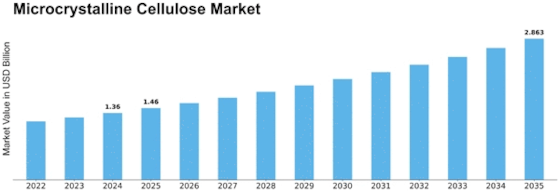


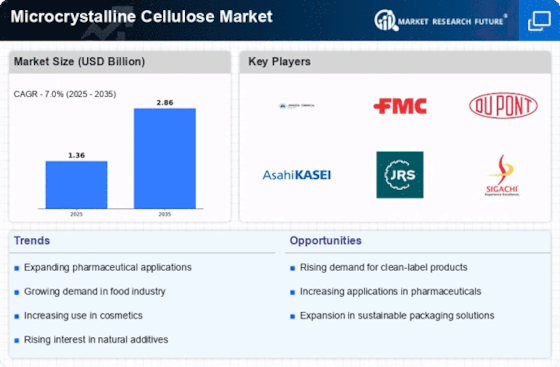
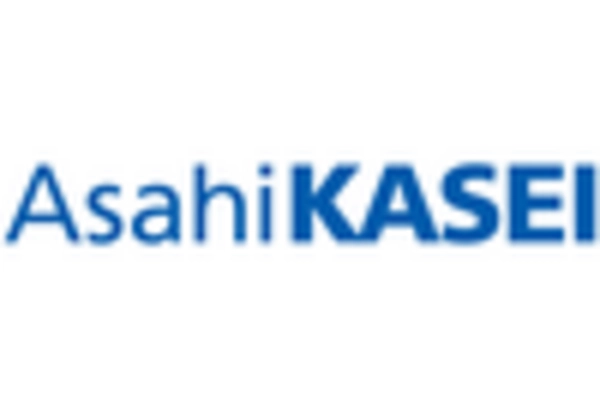


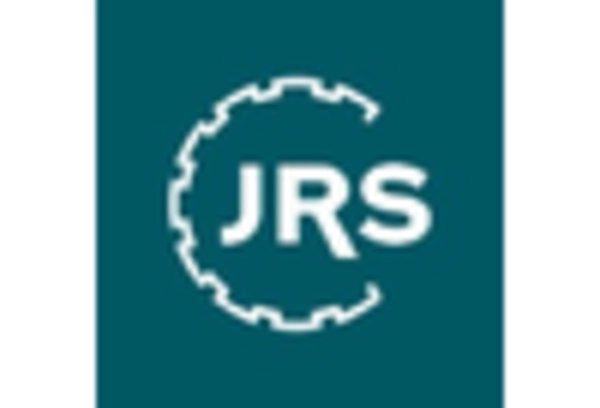

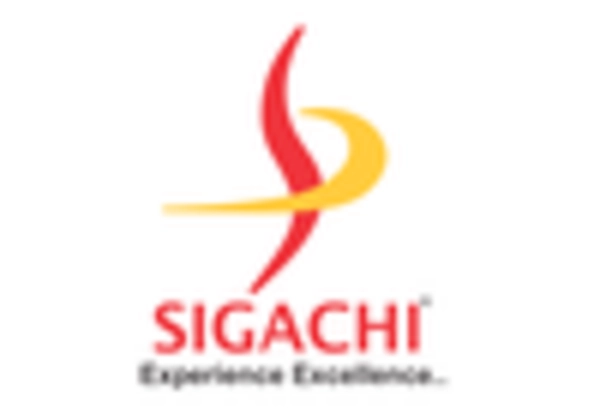









Leave a Comment